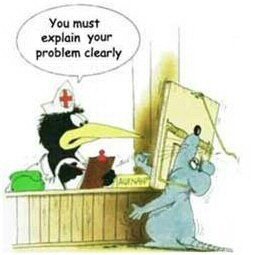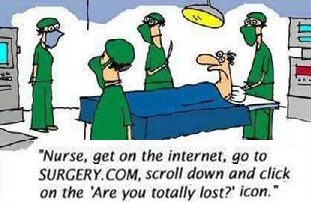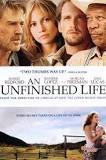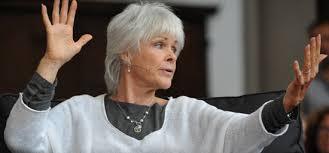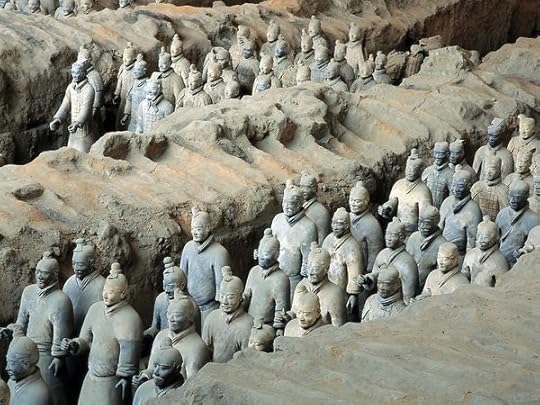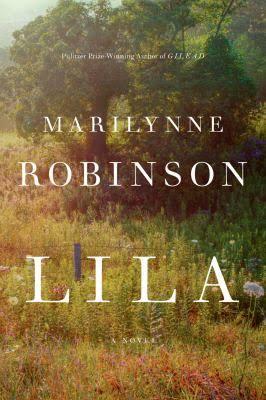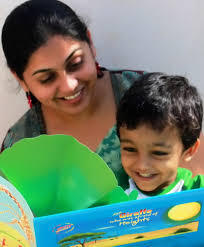Elizabeth A. Havey's Blog, page 34
July 17, 2016
Got a Doctor Appointment? Check This Out.
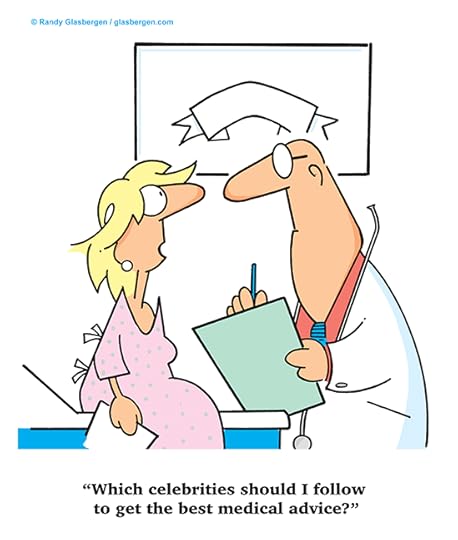
Almost every time I arrive at my annual physical or any doctor appointment, I forget ONE thing. And it’s not my symptoms or questions, no. It’s always a list of medications and vitamins that I take. Almost immediately I am handed forms to fill out and there I am, scrambling to remember names, dosages etc. (This time I’m going to type up a list, save it and print out a few copies.) Take away–want to have a successful doctor appointment? Be prepared. And don’t just jam all your med bottles into a paper bag and bring them along–the approach above is less cumbersome, you won’t lose your drugs and you’ll always have the list. Below, a few more tips for a successful appointment.
Doctors are often late. They don’t want to be, but things happen: a patient is late; a patient does what doctors fear–gets up the courage to say I HAVE CHEST PAIN as the appointment is ending. Extending a slotted time for a patient can happen for a number of reasons, over which you and your doctor have no control.
Keep things moving, don’t make the doctor question why you are there or if something other than a routine physical is required at this appointment. Address your concerns with your doctor immediately. Even if the thing you want to tell him or her frightens you (I have a lump in my breast) say it right away–get the news out so the doctor can handle the issue, put it at the top of the list. When patients fail to do this, doctors call it the OH BY THE WAY, moment.
Be specific about symptoms and when they started and what they are. Dr. Amber Tully MD says if you do that, a full report might even make it unnecessary to run certain tests.
Once you’re related your concerns, let the doctor run the conversation. The questions you will be asked will hone in on the process of determining your care. Relating that this ache started during a volley ball game might be relevant, but keep the details short and related to your symptom.
Doctors will never pass judgment on physical problems that relate to intimate patient concerns. You’re there to get help–tell your doctor intercourse is now painful or that you’re passing gas constantly. Isn’t that really why you are there? The doctor is not a mind-reader.
Doctors want you to understand what has been discussed and what your take-aways are. If you are unclear about anything–ask! And it’s always a good thing when you are given a new medication, to repeat back to the doctor or the nurse the instructions for taking that medication. I like to take notes.
Be honest. Doctors will be able to help you only if they have true information: you took your husband’s antibiotic; you aren’t taking any of your meds; you smoke, drink, do street drugs, have more than one sexual partner.
Dr. John Ely underlines the importance of accurate exchanges between doctor and patient by listing the eight characteristics of a symptom as:
where is your pain (if that’s your complaint) and where does it radiate i.e. move;
this symptom: lasts how long? occurs how often? is getting worse? is getting better?
Describe what you were doing when this pain first occurred?
Do you have other symptoms associated with this symptom, with this pain? Describe them.
Using an example, describe the quality of your symptom i.e. pain is like the stabbing of an ice pick or burns like fire
Now describe the quantity of this symptom i.e. on a scale of 1 to 10, 10 being the worst what is it?
What makes your symptom worse? if your were dizzy is it worse when you roll over in bed?
What improves the symptom? Heat, cold, sleep, eating, movement etc.
For more information about making the most of a doctor appointment, please check out my past posts: Bring Your List of Questions to the Docs Office, They have A List Too. And Be Your Own Health Advocate.
Thanks to Parade Magazine and the WELLMARK BLUE Publication
Thanks to http://www.guy-sports.com/humor/jokes... and www.glasbergen.com
(Visited 15 times, 1 visits today)
July 10, 2016
Think a Positive Story–Live One Too

If you see your life as a positive story, can you also live one too? Well, the process certainly has benefits, but it also has elements fighting against it. Years ago when I was struggling with some health issues, a close mentor-friend told me to say aloud to myself: every day and every way I ‘m getting better and better and better. I did. And I did. Now, with everything we are facing in the current 24-hour-news cycle, it might be a good idea to steal away some positive thinking time and turn off the noise.
The theory behind the internal monologue is that your subconscious mind, a powerful force, hears things you say like: I’m never going to get that job; I’m a failure; with everything that is happening, life just isn’t going to get better; and these words actually affect your actions so that the negative thing happens—especially if the negative is often repeated or has nothing positive to offset it.
It’s your powerful subconscious that is programming your future either into good luck and success or into the hospital—or possibly the grave. Tell yourself at 50 they you just want ten more years and it’s quite possible you’ll have to struggle with a major illness when you hit your 60th birthday. It’s important to cultivate positive feelings about your life and your life choices.
Skeptical? For one thing thinking positively leads to positive action, action that encourages health, advancement, and success. Examples: caring for the body by following preventative health measures; caring for the mind by exposing one’s self to new ideas, theories, and keeping up with what’s happening on the planet all the while avoiding repetitive negative news that increases your heart rate and makes you yell at your family.
Clinging to the negative (he hates me, he’ll never promote me no matter what I do, we are doomed, things will never get better) can preclude personal growth. Opening to the positive can be transformative.
It’s not an easy thing to do. Sometimes today is all that counts–as some reach for the cigarette, the street drug, drive while texting, fail to practice safe sex, ignore new information available to them and balk at taking a class or working under a new supervisor to advance in a career. People want to give in and say, “Forget it. No mater what I do, things are going down hill.” Instead of fighting back, believing it’s a momentary slump, things will improve and the positive will occur.
Seventy-three-year-old Byron Katie, who has been called a Spiritual Innovator for the 21st Century, in her book I Need Your Love—Is That True? teaches that we can create our own reality by believing our own thoughts. And she is talking about toxic thoughts, thoughts that make us suffer. Who wouldn’t want to change that.
She says: “Thoughts are like children. They’re gonna scream till we pay attention. When we do, and when we put these beliefs to certain questions, thoughts we’ve believed for 40, 50, 60 years—the worst stressful thoughts—get popped. It takes a lot of courage. But isn’t it time to get real? Haven’t we conned ourselves long enough?” I love that–the thoughts get popped, we see that they are wrong, that isn’t who we are.
The above process is what happens in Katie’s seminars that she calls The Work. Who should attend The Work? Katie says: “It’s for everyone who wants to end their own suffering and whose mind is open to questioning what they believe to be true.”
Here are four questions you would have to ask yourself at a Byron Katie seminar.
Question 1: Is it true?
Katie says this question can change your life if you can be still and ask yourself if the thought you wrote down is really true.
Question 2: Can you absolutely know it’s true?
Another chance to open your mind and go deeper into the unknown, finding true answers that might be hidden by what we think we know.
Question 3: How does your body react—what happens—when you believe that thought?
This helps you notice internal cause and effect. When you believe the thought, there is a disturbance. It’s stress that can range from mild discomfort to fear or panic. How does what you’ve written about, the thought you believe, make you feel about a person or event? How do you treat yourself or the person you have written about because of this thought?
Question 4: Who would you be without the thought?
Imagine yourself in the presence of the person or event without believing the thought. Would your life be different if you could remove the stressful thought? Katie finally asks: which do you prefer—life with or without the thought?
Katie instructs her attendees to Turn the thought around: When you do this, you are able to experience the opposite of what you believe. Once you have found one or more turnarounds to your original statement, you are invited to find at least three specific, genuine examples of how each turnaround is true in your life.
Katie writes: “The Work reveals that what you think shouldn’t have happened, should have happened. It should have happened because it did, and no thinking in the world can change it. This doesn’t mean that you condone it or approve of it. It just means that you can see things without resistance and without the confusion of your inner struggle.”
Katie and my mentor-friend are similar in their approach. Having one life to live should encourage us to find truth and to find a way to live with truth, as some of it—ie chronic illness, the death of a child, the loss of a job—makes living extremely difficult. But we cannot blame it away, deny it away, hate it away. And we should not go through our days telling ourselves that because of the event, the illness etc we are doomed.
My mentor-friend showed me that for physical challenges it helps to talk to your body with love. Example: gently massage your forehead or neck when you have a headache while saying relax, you’re okay, take it easy, instead of throwing yourself into an activity where you attempt to ignore the pounding and just be angry at your body.
And for interpersonal challenges, it’s about approaching the stressful situation staying as calm as possible until you have all the facts. In a huge argument with a teenager you might be able to acknowledge that one choice he made during the event was a good one, while pointedly explaining why the other choices showed poor judgment. When it’s over, you’ve kept the door open and helped him walk away with some pride intact.
Finally, for mental challenges, it might be necessary to seek the help of a counselor, someone who can work with you on an impartial basis and help you see where you are, how you can stop “stinking thinking” and get past your hurt. At the end of each day, meditation with a thank you repeated over and over to Spirit can help you get up and cope again the following day.
Byron Katie says: “On our deathbeds, we’re still saying that he or she ruined my life. People say life is a dream. Well, let’s question the nightmare and have a happy dream. Retiring from stressful thoughts could be the most important retirement there is.” So think a positive story and live one too.
(For more information about Byron Katie and The Work click on the links above.)
Thanks always to Barbara Tennant
To watch a film where what someone believes affects his entire life, watch:
An Unfinished Life with Robert Redford, Jennifer Lopez and Morgan Freeman.
Below, Bryon Katie Above photo courtesy of Google Images
(Visited 18 times, 3 visits today)
July 3, 2016
What I Love about America
Do you remember as a kid having an argument with a sibling or a friend and when they tried to stop you from doing something you responded: Hey, it’s a free country! Those words, if we truly examine them, are incredible words that even as children we so took for granted. Because yes, we were living in a free country and most of us could roam our neighborhoods or fields and vacant lots with impunity–a gift we took for granted. It’s just one of the reasons why I LOVE AMERICA.
Today, as adults, our freedoms still exist, though for some there are challenges. But because we are celebrating the 240th birthday of the United States of America, I wanted to list some things about my country that I love. (And a nod to TIME MAGAZINE who did the exact same thing in this weeks issue.)
There is not a particular order to my list, except that when creating it, I started from childhood and then moved on.
Vaccines. I love that as a child my pediatrician provided me with the vaccines which were available at the time.The MMR (measles, mumps and rubella) was NOT available, and so I had to experience all of those illnesses and they can be dangerous. But because polio raced through the country affecting many children with death and paralysis, a vaccine was created and was immediately made available to me and my brothers. Anti-vaccinators today need to realize what a relief it was for my mother to know her children were protected.
Backyards, sidewalks and porches. Growing up, we spent most of our playtime outside. In any weather. Imagination fueled that play. We didn’t need any expensive equipment to keep occupied. A white dish towel provided me with a cape–so that I could be Snow White . My brother and I played Davy Crockett and shared one coon-skin cap that a generous relative provided. WE MADE STUFF UP–it was and should still be the American way.
Public transportation and my bike. If we weren’t walking half miles or more to get to the candy store, the park, a friend’s house–we took the 103rd Street bus and transferred to get to the beach. We had a pocketful of quarters to get us there. Or we often biked–no helmet in those days. And summer jobs? The Rock Island Train was always my ticket to downtown Chicago where I worked in the file department of an insurance agency through some of high school and all of college. Now living in California, I wish public transportation was more easily accessible. The state is working on it.
The opportunities for single woman. My mother was widowed with three children, yet forged an opportunity to care for us and work and pay the bills. It got easier as the years went on and women were given more power in the workplace. My two single aunts both had Master’s Degrees and thus acquired excellent jobs in publishing that allowed them to golf and travel abroad. In some countries, my life would have been buried in poverty without a father, a male in the household.
Public education. Though I attended private schools, I became a teacher and fell in love with public education. The soft landings in my life did not apply to many children in the high school where I taught , so being a part of that experience made me value what good teachers and administrators and school boards can do to help an entire community and it’s future workers, parents and children.
Advancing medical science and research. This American gift has profoundly affected my life. Good medical care (and for much of my adulthood that meant HMO’s and PPO’s through my husband’s employment) allowed me to have healthy children, experience the birthing and newborn care of those children in a fully staffed and well run hospital. It has also meant access to advances in the care of cancer and is the reason my husband is still alive today. Thank you medical research and dedicated doctors and nurses of all persuasions who contribute daily to LIFE.
Taxes. Many people complain about paying taxes and often try to get around the system to limit what they have to pay. Bottom line: what if you had a fire in your home and when the firemen arrived they tried to limit the expertise to put out that fire–they tried to pull back and not provide you with all their capabilities. We live in a country where every day public servants deliver our mail, work to keep our cities safe and in California are ready to use any means possible to stop a raging fire that can destroy neighborhoods in an instant. I’m willing to pay my taxes to insure that safety.
The power of voting. I have a say in determining a way of life fro me and my family. Millions on this planet have no say.
For sure, this is a very short list. But it might get you thinking about the things that you appreciate about being an American, the reason you are willing to blot out all the chatter, the voices that have nothing positive to say, who fail to acknowledge anything worthwhile that we as a people have built and can continue to build on.
Our forefathers and mothers insured that we would have the freedoms that we live with today. Let’s celebrate that. And let’s be aware that these freedoms belong to every American. Happy Fourth of July. And don’t forget to vote.
IT’S A FREE COUNTRY!
Photo Credit: ministrytochildren.com
(Visited 13 times, 12 visits today)
June 26, 2016
When You Don’t Get the Window Seat

Between the world and me.
Lately, when I fly, I never get a window seat–my husband is on the aisle, me in the middle. But I have memories of traveling alone from the Midwest to California to see my grandchildren, in the window seat, watching the land drop away, the green fields of Iowa and the mountains of the west below. Going to Chicago, I found the sight of Lake Michigan and the skyline thrilling. Beauty from the air.
This last trip? The young woman in the window seat kept the shade down EVEN DURING LANDING. Nothing to do, I tell myself. This is America where tolerance needs to apply in many situations. Let it go, even if travel might make me cranky and eager to say “Don’t you want to look out at Chicago, watch us glide over this amazing city and land?” I stay quiet. But on some issues, maybe I need to offer some words.
While flying from the west coast to Chicago–I did something.
I read a book. I read Ta-Nehisi Coates, BETWEEN THE WORLD AND ME.
I will never be the same.
And one morning while in the woods I stumbled suddenly upon the thing, Stumbled upon it in a grassy clearing guarded by scaly oaks and elms, And the sooty details of the scene rose, thrusting themselves between the world and me...taken from a Richard Wright poem
You all know Richard Wright! You read NATIVE SON in high school. In this poem, Wright comes upon the remains of a tar, feathering and burning, only to grasp that his future might be the same. But Coates, writing his book to his son, leaps from the scene to the present day. Some things are now outlawed. Some are not.
This is a book about Coates’ fear for his black body. For me, this book is a WINDOW on white privilege, on the impact of words that have come from my mouth over and over: bad neighborhood, ghetto, white flight, gangs with guns and drugs, working the system–.
Go ahead, stop and ask yourself what language you might unconsciously use to denigrate a group of people–and do it casually, like it’s really no big deal. Because it’s so a part of most of us we don’t hear it or see it.
As a child the rhyme, Eeny, meeny, miny, moe, Catch a–the object of which my mother changed to tiger. I don’t know when. But I said the original. I didn’t know what I was saying, but I SAID THAT while playing a game! Now it horrifies me.
It was part of the culture, inbred in daily living. Life without thought. Ignorance. Did I ever stop to ask myself why I said these things? No. Did my white body prevent me from digging through decades of pre-judgment–from seeing clearly that some of my choices smacked of fear? Yes. And then finally I asked myself why?
Because it was ingrained from my ancestors, forebears or the populace that came before me. They handed me a well-crafted picture–just handed it over and said:”Here, believe this, because this is how it is for you and how it will always be.” Were they good and loving people? Mostly, yes. Were they the product of the times, the whispered words, the judgments. Yes, definitely. And Christians also.
Separation. Fear. Build a wall–like don’t drive there after dark; don’t shop there. Don’t take the bus.
My husband took the bus to college through those neighborhoods. NEVER had an incident.
Thank God for NOW because my grandchildren would ask WHY NOT TAKE THE BUS? And since reading BETWEEN THE WORLD AND ME, these phrases, these tossed off and accepted ideas that are so much a part of the nomenclature stand out in my mind like darts of poison–because I am part of this. So what can I do when my policeman relative tosses it off so casually? Try to understand and yet know I cannot change him; arguments take me nowhere. But my black brother-in-law from South Africa, he gets it. He and my sister-in-law have experience DWB–driving while black.
I taught in a school with a diverse population (one of the best things that ever happened to me). But even so, I brought with me some pre-conceived ideas. My friend Linda M. helped wake me up. Told me, WE NEED TO SHARE THE LAND. Yes.
And not just share a dying neighborhood or a crumbling public housing building. See how they trash everything? I cringe even typing those words, but this is what we hear, this is in the language. We need to wake up and challenge it, never make general assumptions. Or at least try to discern WHY some things happen as they do.
My older daughter’s master’s thesis in Urban Planning was on the rationale behind the housing projects in Chicago–many of which have been torn down, thank God, some of which remain. I read portions of her reference books and they pointed to a major fact: a human being needs to have a say, to identify with a dwelling, a doorway, a garden. That builds pride, leads to care. Pushed in one direction without agency in choice blocks attachment. Ever read RAISIN IN THE SUN? Ever think about living in a building 20 stories high with no sunlight in the stairwell, one or two windows lighting your abode and no ability to step outside on a deck or a patio to feel the sun on your face? Sounds a bit like a prison. It was.
We whites think we have struggled for safety. Here is Coates: To survive the neighborhoods and shield my body, I learned another language consisting of a basic complement of head nods and handshakes. I memorized a list of prohibited blocks. I learned the smell and feel of fighting weather…I recall learning these laws clearer than I recall learning my colors and shapes, because these laws were essential to the security of my body.
Coates emphasizes his fear that someone will destroy his body because he is black–and for no other reason. Thus he references the firm and physical discipline of his parents.The LESSON that all black mothers and fathers teach their children: avoid the police when walking the streets. Be careful. Watch yourself. Your life depends on it.
What thoughts went through your mind, Dear Reader, when you saw a black mother scolding her child in a store, or pulling that child toward her? Negative right? Now read this from Coates as he addresses his son:
Now I understood it all…black people love their children with a kind of obsession. You are all we have, and you come to us endangered. I think we would like to kill you ourselves before seeing you killed by the streets that America made. That is a philosophy of the disembodied,of a people who control nothing, who can protect nothing, who are made to fear not just the criminals among them but the police who lord over them with all the moral authority of a protective racket. It was only after you that I understood this love, that I understood the grip of my mother’s hand. She knew that the galaxy itself could kill me, that all of me could be shattered and all of her legacy spilled upon the curb like bum wine. And no one would be brought to account…because my death would not be the fall of any human but the fault of some unfortunate but immutable fact of “race”…
Coates recounts his first trip to Paris, a joyful-sad experience for a man bursting from the historical bonds of American society. Sitting in a Parisian garden he writes: At that moment a strange loneliness took hold…It occurred to me that I really was in someone else’s country and yet, in some necessary way, I was outside of their country. In America, I was part of an equation–even if it wasn’t a part I relished. I was the one the police stopped on 23rd Street in the middle of a workday…I was not just a father but the father of a black boy. I was not just a spouse but the husband of a black woman, a freighted symbol of black love. But sitting in the garden, for the first time I was an alien, a sailor–landless and disconnected. And I was sorry I had never felt this particular loneliness before–…far outside of someone else’s dream.
Yes, we all have dreams. But they have to be ours. SHARE THE LAND, let others have their dreams without a catch. J Beckett says in his Goodreads Review of Coates’s book: The tears came because Coates, in a few pages, captured, exposed, unlocked and translated what so many people of color, so many frustrated and frightened parents, and so many disenfranchised and nomadic youth found so difficult to dictate and explain. For them, the feelings were there but the words simply would not come. I wept because Coates’ story was my story..
And part of Coates story is my story–it’s my inability to fully see and understand. I have a bigger window on that story now, even though what I saw was not my plane landing at Ohare in Chicago, but the words on the page bright and vivid calling out to me.
Read this book. Let me know if his words touch you also.
P.S. Next week, The Terra-cotta Warriors, on display at the Field Museum. If you are in Chicago, don’t miss it.
(Visited 27 times, 6 visits today)
June 19, 2016
My Father: The Day of Magical Thinking

I notice his gold ring, gold watchband and a maroon tie peaking out from the shirt under his white coat.
It happened when my dentist went on vacation. A much needed one, but a little excessive for the amount of time he would be gone, 22 days. Because during that time I needed to see him for a checkup and cleaning. The office had called asking if I’d see someone else while he was gone. I was overdue for a cleaning, and said yes.
So this morning I was awakened from a very vivid dream about my father by the phone ringing and Helen, my dentist’s receptionist, telling me that they could see me in one hour. They had a replacement dentist. I move fast and I’m in great shape at sixty, but they were a little abrupt with the allotted time and I was not happy about having to hurry. One hour to shower and dress and drive there. (I didn’t get my hair blow-dried to my satisfaction.) But I made it, and they set me up in the dental chair.
As usual, first I saw Christy. She’s my hygienist, has the same name as my second daughter, though she spells it differently. Her husband has been in Iraq, it seems forever, and I’m always nervous about asking her how he’s doing. My mother is a widow, Christy has a son, and I’m just sensitive to that stuff. I guess I would immediately know if something horrible had happened.
She’s always cheerful and does an excellent job on my teeth. Obviously you can’t talk when someone is probing inside your mouth, but I get a question out now and again just after she finishes suctioning, and then she’ll talk about her husband and what he’s doing while my mouth is full again.
This morning, something strange happened. She had cleaned some of my top teeth and told me it was time to rinse. When she removed the buzzing brush, I automatically turned my head to the left to spit. An old reflex. There was no bowl there with the tiny metal spigot of water running in a half-circle. They don’t have those anymore. We laughed about it and she handed me a small paper cup filled with a cinnamon tasting liquid—the rinse.
A few moments later Helen comes in and they are talking quietly. I learn that Christy’s mother has arrived—an emergency situation. She is having lots of pain in one of her teeth and naturally would come right over and see her daughter who is in the business. Christy apologizes. She’s got to go check on her mother and then she’ll come back to finish my cleaning.
I’m fine about it. I’m a nurse. If my mother or one of my children needed me, I’d be right there.
I lie back in the chair and close my eyes for a while. I didn’t get my coffee—it’s decafe every morning—but still the aroma and the routine gets me moving. This dental chair is recumbent so my feet are up; I’m comfy. I have a book in my lap. I always have something to read with me, but I close my eyes. I doze off and on.
Once I open my eyes and look into the hallway. There are no doors on the examining rooms which all open onto this hallway. People flow in and out with x-rays and lab reports, bringing appointment cards and those tiny tubes of tooth paste that you always get to take home with you.
The replacement dentist is standing there. He has his back to me. He’s wearing a very starched white jacket, well not exactly a jacket, it falls to his knees and has a slit up the back. It’s more like a lab coat. The sleeves are three quarter length so that the fabric won’t get in his way. If he were closer I might even make the crack about didn’t he get the dress code email today? This dental practice does a color coded thing. All the hygienists and receptionists, even the dentists, wear the same color scrubs—but it alternates—maroon on Tuesdays, beige on Fridays. There’s a pale blue.
The replacement dentist turns a bit in the hallway—I can’t hear him talking, but he’s standing there like he’s conversing with someone, his hands held together at his waist. His hair is a soft brown, longer than I’m used to seeing. He has it combed back along the side and neatly trimmed around his ear. I notice his gold ring, gold watchband and a maroon tie peaking out from the shirt under his white coat. Is that his nod to the dress code? Are the rest of them wearing maroon today? I didn’t notice, but I know it’s not Tuesday. Maybe when he comes in later to look at my teeth I’ll ask him about his glasses. They look to be those new flexor type—all plastic lenses with no frame, very lightweight. I’ve been thinking about getting a pair. I doze.
After a while Christy is back. She finishes my cleaning, gives me my new appointment card and new toothbrush and tubes of paste and leaves. I know in any given amount of time, depending on how busy he is, the dentist will be in to see me. He’ll look at my teeth using that probe with the mirror on it. He’ll ask me if I have any discomfort, comment about when the next set of mouth x-rays will be done and then I can go.
I close my eyes for a while. And then I hear him walk in. He’s already behind my chair when I open my eyes. I can hear him open the chart which Christy has left on the table at the back of the room.
“Havey,” he says. “I know the Haveys.” His voice is deep, but has tenor qualities to it. It’s a lovely voice and I’m a little annoyed with myself that I am drawn to it suddenly. His coat makes a crispy, starchy sound as he moves and when he does my skin tingles. Now I’m arguing with myself. It’s the same sound my husband’s stiff white shirts make when I hug him.
“These Haveys were back in Chicago.” He flips a page in the chart.
I sit up straighter in the chair, which is hard to do because the very nature of these apparatuses is to have you lie back. “I’m from Chicago,” I say. “My husband is the son of Ed Havey.”
“That’s right. I knew that.” The voice pulls at something in me.
“You did?”
He doesn’t answer me. He continues to read the chart. I want to turn around and look at him, but that wouldn’t be proper. He’ll get to me and check my teeth soon enough.
And then he says, “So do they still call you Beth.”
Now something moves in me. My heart jumps, quivers. The way he asks it—it’s not really a question. And the word Beth in his mouth—it feels different, to hear it, a resonance or some other context that I’ve never heard before with the sound of my name.
I hurry to answer. “Yes. I love my given name, Elizabeth, like in the chart, but yes, everyone calls me Beth.” My other dentist must have it written down somewhere. Nickname, Beth.
“And I see you’re a nurse. I’m so happy to see that. I would have thought you would be influenced by your mother’s sisters—be a teacher or at least write.”
His voice is leading me. It demands that I answer even though these are not the questions that a replacement dentist would ask. Maybe I briefly decide he knew my people back in Chicago. Maybe I don’t. “I’m not practicing nursing right now. I actually am writing. And I was a teacher. That was my first job. But I taught English. Like they did. Like my oldest brother, John. He teaches at Georgetown. He’s a PhD. A published author.”
“That’s a wonderful thing. You both have done so well. And Bill?”
“You knew Bill, back in Chicago?” I’m thinking that maybe if he finally comes around and I can see his face I will know that he’s closer in age to Bill. Maybe he even went to school with Bill, my younger brother.
“I didn’t know Bill. Not as well. So he’s–”
“Oh, in the music business. Out in LA. He’s been there forever. Except for a job in New York for a number of years. We are very close.”
“And then there’s your amazing mother.” My mother is 92. Now how would he know her. Now I have to turn around. I struggle in this recumbent chair to twist my body and look at him. He has his back to me, sitting on a stool in front of the desk, still bent over the chart, one elbow resting, the right hand turning the pages. I turn back. The chart. He’s so into the chart.
“I know I’ve had way too many cavities,” I say abruptly, apologizing. “I had to have four of my molars capped. I’m sure it’s all there. I’m better about my teeth now. I am. But my father would not be very happy with me.” I always say this.
“Why not?”
“My father was a dentist. That’s why. I should have perfect teeth and I don’t.”
“Your father is very happy with you.” And then he gets up and comes around, wheeling the stool with his foot. He stops it at the side of the chair, near my feet. He sits and looks at me. The first thing my eyes focus on is his tie, bold in color against his white clothing, but soft real silk. And the glasses are real glass, highly polished with gold wire side pieces. His trousers are wool with a very fine grey stripe in them and his shoes are leather and highly polished. My other dentist wears tennis shoes. This replacement dentist is about 45 years old. He has my chart in his hands.
“I was making a sandbox for you. Or did I finish it,” he says.
“You finished it.”
My heart is pounding in my ears. I’m not sure I am hearing him correctly, hearing myself.
“You kids wanted a dog.”
I rush on. “I was way too young to remember. But this woman called me when I published an article about becoming a nurse and feeling closer to—to you. Because of the medicine connection. She was one of your patients and she said you were going to get me a puppy.”
There are tears in my eyes, they are running down my cheeks now. I brush them away hurriedly because I don’t want my vision blurred. I want to be able to look into his eyes and hold them there, watch how he moves his head, what he does with his hands, hear again the crispness of his starched coat and every word intoned with his amazing voice. I want to ask him questions, but I’m afraid to move, to say a word; I’m terrified that Christy or Helen or someone will walk in and he will just disappear.
“I would have gotten you anything you wanted.”
“In a scrapbook, I have the pumpkin you drew me,” I say. A stupid comment. There are so many more important things to talk about.
“Your mother is doing okay.”
“She talks about you more and more. She says she knows she’s getting ready to see you. Oh, but she’s so old.” My voice cracks and the tears are worse now. He is so young, 45, his skin clear and unwrinkled, his body straight. He left us when Bill was just 3 months. John was six. I was three. My mother has osteoporosis. She is shorter than he would remember her, wrinkled and grey. And then I say, “But her hair stayed red for longer than anyone there ever was.”
He smiles. It’s the same smile from the photograph—the one that sat on the drum table in our living room when we three children were growing up without him. He’s got this very soft smile and he’s wearing a maroon tie and his wire-rimmed glasses. The photo was taken not long before he crashed over in a chair in that same room, dead from a massive MI—heat attack. Now I’m shaking, my hands, my legs still outstretched in the recumbent chair. He’s just the photo on the damn table. He’s going to disappear.
“Your teeth are fine today. You are fine today. And you have three wonderful children.”
“Your grandchildren. They didn’t get to–”
“It’s okay, Beth. Really. You have to see that. I’m just here to reassure you.”
“May I touch you?” I finally ask him. I’ve been afraid to ask him.
He smiles and shakes his head as if to say don’t ask too much. Then he says, “I see you like to read.”
And then it happens. “Dr. Pfordresher, can you check on Christy’s mother again. Her pain is worse.” Helen, damn her, is standing in the doorway.
“He can’t leave. He hasn’t looked at my teeth yet,” I say boldly.
“Your teeth are fine today. You are fine.” He’s repeating himself. People in dreams sometimes repeat themselves.
“Don’t go.” I say it loudly, boldly. I’ll cry out if I have to.
Helen has walked away down the hall.
“Tell your mother, I’ll be there.”
I am sobbing now. I cannot help it. I fight to make it stop so that I can watch him, how he rises from the stool, gently pushes it back against the wall, how he walks behind my chair again, setting the chart on the desk. I am up on my knees now, turning my body to watch him. He’s moving toward the doorway.
“Dad!” It’s not a cry for help, not an angry cry. It’s more a pleasant, joyful escape of sound, something that I cannot ever remember doing as I was so young when he died. Three-year-olds don’t remember. Now I have said his name.
He turns back to look at me, a sixty-year-old woman holding him in my heart.
“Beth,” he says again and lifts his hand as I have seen him do thousands of times in my dreams. And he walks away, down that hallway.
I gather my purse, my book and stumble out of the chair. I forget my appointment card, my toothbrush, those little tubes of paste. I wander down the hall looking for him, questions for him pouring through my mind like water. Why did you die on us? Do you know everything about our lives? What do you think of this country now? Did you know that now medicine could have saved you? You could have lived to be my age or older.
Everyone is wearing pink today. They smile at me strangely and I know they are wondering why I am wandering around looking in all the exam rooms. He’s not in any of the rooms. I even check the break room, but he’s not there. Of course he wouldn’t be.
I had to go to the dentist today. And it was just my day of magical thinking.
Dr. Albert George Pfordresher DDS of Chicago, Illinois died of a massive coronary in his living room on June 4, 1950. He left a widow, my mother Virginia Pfordresher, and three children—John C. Pfordresher, a professor at Georgetown University, William F. Pfordresher, a song writer and music producer, and Beth—who wrote this piece. She thanks Joan Didion for the phrase “magical thinking.
This is a repost in honor of my father and Father’s Day. You might also like: FINDING MY FATHER Even though we never had the opportunity to talk about careers, my father influenced my career choices.
(Visited 101 times, 3 visits today)
May 31, 2016
Make Time Your Friend, A Lesson I Really Need Now!
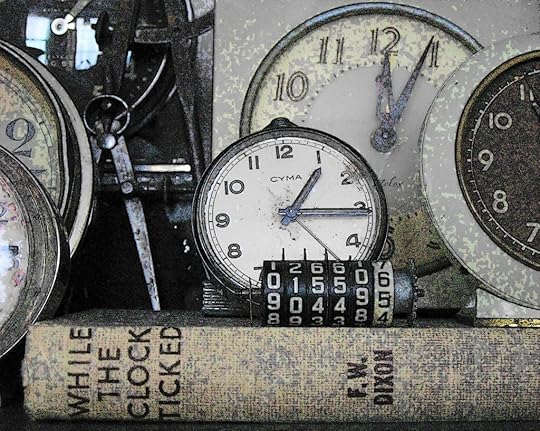
From the moment we awake to the end of the day, we are constantly employed with the job of living. Depending on how smoothly time flows, our day might go extremely well or it might bump along until we cannot wait to end it, fall into bed!
No matter what our day contains, how we have planned or didn’t plan a given day, and what our attitude is toward the day’s events—time is passing on. We are aging minute to minute:
• heart continually beating,
• gravity pulling on the body,
• the environment exposing us to damaging elements that could affect intricate organ systems and overall health.
We don’t think about these things as we rise from sleep, make breakfast, check email or simply begin the chores and obligations of the day. They vary greatly depending on whether there’s a job to drive to, a train or bus to catch, appointments and deadlines to keep or children to care for.
But in fleeting moments when we separate from life’s busyness and just consider living, Deepak Chopra has some guidelines to help make time a friend. His rules can help soften time’s frantic pace and lessen the negative affects it has on our physical body. It can also help calm the mind that is often fraught with worry and concern. And that’s where I am right now, the news of this election cycle affecting my mood WAY TOO MUCH. I need to remember the gift of each day. Here are some guidelines:
Whenever possible eliminate negative thoughts and relax; work to accept the bumps in the day….
Click To Tweet
• Rule One: Where the mind goes, the body must follow. If our minds are constantly worrying, then our bodies are constantly being placed under stress. Cortisol runs through the blood stream increasing heart rate in the flight and fight response. We become jumpy and unnerved. Our bodies are following our minds, aging every minute as we stress out, worry and fret. Lesson to Learn: whenever possible eliminate negative thoughts and relax; work to accept the bumps in the day. Breathe!
• Rule Two: Memory freezes time and makes us relive toxic experience. This is a hard rule to follow, because humans love to hold on to things. With two fists clenched and with a mind set in a firm pattern, we go back to things that are finished, things that happened days, months, years ago. We call up hurts, regrets, betrayals, things that mar the calmness of the present. It’s like taking a beautiful beach scene and wanting a tsunami to occur. All the toxic feelings associated with that event come roaring back. Where there might have been stress-free healthy living, now we are experiencing those very same illness-producing feelings from the past. Lesson to Learn: to fight aging, live in the present and let the past go. Breathe!
• Rule Three: Aging is rooted in stuckness. Linked to Rule Two, this one reminds us that bad experiences leave chemical residue in our cells. Dwelling on divorce, job-loss, a friend’s betrayal allows the flight and fight experience and the cascade of negative chemicals to reoccur, circulating through our bodies. The heart races, anger rises shutting out pleasant experience. Stop this cascade of responses. Breathe, think uplifting thoughts, cultivate relaxation. This clears negative chemicals from organ systems. We will get unstuck, our minds focussing on the good things happening in life. Lesson to Learn: breathe out tension when stuck. Embrace the present. That’s staying young.
• Rule Four: A river never ages. Like flowing rivers, embrace change. In order to stay young, mind and body must accept change. The direction of the change is our choice—are we going to move forward or backward? Are we embracing newness in life as we hear the news or deal with a bank balance; or are we dragging ourselves back into stuckness—angry about what is happening in the world when truly some things are hard to change or worrying about bills when maybe some budget changes can help. We can turn off the news; have a family meeting about spending. These are forward ways to handle concerns. It’s up to us. Lesson to Learn: Creativity brings change; be creative in daily life and let change bring exciting challenges.
• Rule Five: Beyond time, the experience of youth can be eternal. Chopra conjectures that someone once said: an ageless body depends on a timeless mind. What is timeless in you? Your soul, your consciousness, your mind freed from memory during meditation? Yes! We need to free ourselves. Immortality is that timeless part of us that we’ll find through meditation. Chopra says meditation and letting go will allow the mind to find truth. And truth is beyond the confines of time. Lesson to Learn: Stop the dirty dishwasher of thoughts. Focus on breathing and find the truth buried within.
Time is a precious commodity. Each morning I will continue to select something I truly want to do during that day–like write this post–and make sure I do it. Time can steal away life before we paint that picture, walk in that garden, tell someone we love them or that we are sorry for something we said. Make Time Your Friend every day. I know I need to truly work on this.
PS MY ERROR: For those of you looking for my piece on HEARING and HEARING AIDS, it was a guest post that I inadvertently published here. It will appear here later this season. My apologies. I would send you to the blog where is appears, but it has not been posted yet.
Photo Credit:as-the-clock-ticked-altered jpeg.
(Visited 17 times, 7 visits today)
May 30, 2016
Your Future Could Be: What? Could You Please Repeat That?
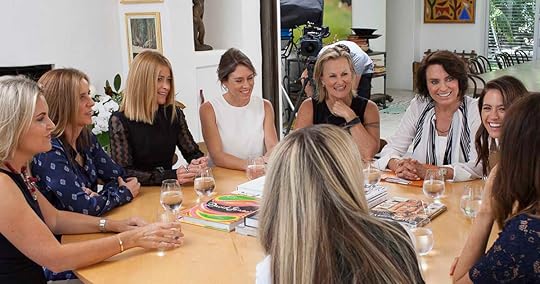
When my friends and I get together for a glass of wine and good talks, at some point the topic of aging usually arises. And it might stop right there with: Hey, we’re still here, as the wine is passed and we begin to plan a trip or chuckle over the recent news of our grown children. Then again, we might focus on aspects of aging that we’re dealing with—thinning hair, the latest skincare tips, the need to go up or down a size, foot surgery—that seems to be more and more common after years of flip flops and high heels. But so far I haven’t noticed any one of us asking that we repeat things. Hearing loss is subtle and it’s easy to smile and pretend you heard everything.
THE UNTOUCHED TOPIC
Hearing loss is rarely discussed. I remember my friend Cathy, during a more philosophical talk we were having, saying that loosing her hearing would be worse than loosing her sight. When I expressed the exact opposite opinion and asked her why she took that stance, she immediately said how painful it would be to not hear music. Yes! And bird song and your granddaughter’s first word.
Hearing loss and the use of hearing aids is a delicate topic and we’ve often ignored it. That’s not to say that it won’t be a hot topic in the future. I’m predicting that it will be! And when one of us has to get some form of a hearing aid, I’m hoping it’s not hidden away, that we can talk about this, share information.
Consider: people born with eyesight can get glasses when needed or have eye surgery. People born with hearing can get hearing aids when needed. Hearing aids offer the ability to again partake in a conversation even though hearing loss has occurred. But unlike glasses, it is taking us a long time to consider them a cool thing. With new technologies, that is definitely changing. For more information, go here.
TINNITUS: A PRECURSOR
After a noisy family wedding back in 2001, I tried to fall asleep, but began to realize that I was experiencing a humming or buzzing that could only be tinnitus. A few months later an episode of vertigo that I experienced on awakening sent me immediately to my very kind doctor. He ran a bunch of tests, even checked me for lyme disease. A few weeks later, being concerned about Meniere’s disease, I had a hearing test and physical exam with an ENT. Diagnosis, not Meniere’s but minor hearing loss and BPV—benign postural vertigo. (see definitions below)
I was relieved, but tinnitus can be extremely annoying. I read about it, and like some of the articles emphasized, I realized that relaxing into the condition instead of focussing on it helped my brain block the annoyance. I could hear and that’s the bottom line. I still have tinnitus and always will. Most often I am no longer aware of it, except when in a very quiet room. AND, after being around loud sounds for a long period of time like a concert or a wedding. Then it becomes exacerbated. Ear plugs help. So does avoidance of sounds from motors. I wear ear plugs when I vacuum or use machines doing yard work. (My goal is always prevention, no matter what aspect of my health is affected.) Sometimes I just plug my ears with my fingers if I pull up next to a car blasting whatever.
The diagnosis of tinnitus also underlined that hearing aids were probably in my future. I am fortunate to have longevity on my mother’s side of the family–grandmother, aunt and my mother all lived into their nineties. But all wore hearing aids.
HIGH AND LOW SOUNDS
The commonly stated range of human hearing is 20 Hz to 20 kHz. In a sound laboratory, which blocks out interfering sounds, humans can hear sound as low as 12 Hz and as high as 28 kHz. Individual hearing range can vary depending on the general condition of a person’a ears and nervous system. Women typically experience a lesser degree of hearing loss than men, with a later onset. Men have approximately 5 to 10 dB greater loss in the upper frequencies by age 40.
My husband and I are about the same age, but I have noted that I can hear high tones that he cannot hear. You can take a hearing test on your computer, but it might not be very accurate depending on the condition of the room you are taking the test in and the quality of the headphones you use. (I recently did a test of identifying musical notes. I did this for my nephew and did very well. I was pleased.) And once again, age and prolonged exposure to loud sounds can significantly lower your ability to hear high frequencies. Sensorineural hearing loss means that the loss is related to a problem with the cochlea or the inner ear. An exam done by an audiologist can usually determine the degree of hearing loss and why it is occurring. Educate yourself about hearing loss.
ACCEPTING WHAT’S GOING ON
Every one of us is aging. You might be 30, but yes, you are aging. It’s the human condition. And yes, I might have some years on you. So what am I doing about it? Lots of physical things to avoid immobility, which is the real killer. But also brain things. I read. I research. I write this blog. Being informed about hearing loss is better than doing the old HEAD IN THE SAND trick. Keep track of your health. If more and more you find yourself saying, WHAT, COULD YOU PLEASE REPEAT THAT? It is time to see your doctor or a specialist. And have those ear plugs handy. You never know when your wild nephew might show up with his band.
Meiniere’s Disease: a disorder of the inner ear that causes episodes in which you feel as if you’re spinning (vertigo), and you have fluctuating hearing loss with a progressive, ultimately permanent loss of hearing, ringing in the ear (tinnitus), and sometimes a feeling of fullness or pressure in your ear. In most cases, Meniere’s disease affects only one ear.
BPV: Benign Positional Vertigo: develops when small pieces of calcium crystals that are normally in another area of the ear break free and find their way to the semicircular canal in your inner ear. This causes your brain to receive confusing messages about your body’s position.

Make Some Noise for National Tinnitus Awareness Week
photo credits: www.harpersbazaar.com.au, https://www.yourhearing.com/blog/make...
(Visited 14 times, 4 visits today)
May 22, 2016
The Staying Power of Words

Maybe our words float up into the ether.
Do your fingers ever hover over the keyboard before you create a sentence or hit send? We might be able to assign a few more seconds of hesitation to the “writing, posting” process than the speed of which WORDS come out of our mouths. In either case, words have staying power. On the internet they are almost forever. Politicians and pundits have alerted us that tweets can be deleted–but not really. What was said is OUT THERE.
Maybe fifteen years ago, I started to believe that every word I said (and that lead me to believe the words of everyone who has lived on this earth) is floating around in the ether somewhere. My words of love were there; my questions. And so were my angry words, my vindictive words. So were the taunts I overcame and the angry words of others that I experienced.
But on an even higher level, my words of love or those of anyone–parents, scholars, writers–were struggling against the words of folks gone wrong–like Hitler and Mussolini–their words challenging those of Jesus and Buddha, thinkers and philosophers. There is not room on the page to create a list of humanity’s ideas that grapple with other ideas, words.
And I think this concept could be scientific fact–though that’s not my forte. The idea also smacks of some psychological fact. Ask a counselor or a psychologist, psychiatrist. People spend years aching, hurting, burning over words said to them by their parents, other family members, friends or a person they bump into on the street.
Yesterday, while listening to a podcast, Brene Brown told the story of an artist who offered his mother a drawing at the tender age of eleven. She was about to hang it on the fridge (which all mothers know is the first place of honor) when the boy’s father walked in. “You’re not planning to become some faggot artist are you?” Did the picture get hung, did the boy go on to draw more? No–not until he was in his fifties. Words have staying power. They float around in the ether and become indelible memory. They do damage. They can’t be taken back. Amended? Maybe. But does that work?
You might not agree with my theory about the ether–but everyone who draws breath has a memory of a word or words that they either try to forget because of some hurt or long to remember because it sent them on a positive life-journey.
Take-aways:
might be a good idea to linger over the keyboard before hitting send
give yourself a time-out before responding to a text, email or voicemail that riles you up
sometimes the message can still be delivered but with the proper word choice (sorry I believe that PC has its positive effects)
How fascinating if in a story or a novel, a person walks into a room and encounters a barrage of words floating in the ether that uplift him and encourage him to fulfill a quest. How fascinating if the memory of one word (and not faggot but artist) propelled an eleven-year-old boy to take art classes in high school, only to go on to be able to sell his art and help take care of his mother and his father when their health was failing. (Love that change in the story.)
We, as people, are all about stories, all about words. Yesterday, while singing as loudly as I could during a church service, I pictured my “song words” lifting up through the high ceiling and blowing out into the ether and I hoped they would do some good, push away words of discouragement and anger, words that support the viciousness and debilitating partisanship that is so much of our current culture.
Words have staying power and I want mine to be remembered with “encouragement” and “hope” attached to them. So please have a great week and thanks to author Laura Drake who brought the words of author Madeleine Engle to me today:
The author and the reader “know” each other; they meet on the bridge of words.
Photos: Thanks to www.genesseecountyparks.org and www.transformhypothesis.co.uk

Words form a bridge between us.
(Visited 15 times, 5 visits today)
May 15, 2016
Marilynne Robinson Talks to POTUS Part 2

Novels. Politics. Do they go hand in hand? I’m really going out on a limb here, but I am going to say yes. As a preface to PART 2 of the talk novelist Marilynne Robinson had with Barack Obama, I love considering how reading and novels can bring people with very different backgrounds together to share and be moved in tandem. Again, that’s what democracy should be doing. WE THE PEOPLE. And we the people vote and elect our representatives. So there is a connection.
To stress that point: Reading to your children makes them good citizens. Reading brings the world to children, right on the page. Picture books quietly reveal to a child that people come in all colors. There’s variety in the world of trucks, zoo animals, dogs, cats AND people. What a wonderful thing. Because when that child enters school at a future age, IT IS NO BIG THING for he or she to meet kids that are different colors. In fact, they don’t even notice. That’s the point. And reading takes it to a higher level when a child reads about the boy on the farm, the boy living in the middle of a war, the girl in the tenement or the girl living on a fishing boat–that’s a world-view, that’s variety. Reading helps children see the choices that life provides. It lifts each and every one of us out of the backyard or off the front porch or out of the elevator of public housing and opens up the world. Reading all sorts of books during childhood (picture books, chapter books) and reading novels as adults does that. So if POTUS asked me, I’d say yes. Reading novels makes us better citizens of the USA and the world.
President Obama asks Robinson: Are you somebody who worries about people not reading novels anymore? And do you think that has an impact on the culture? When I think about how I understand my role as citizen…and the most important set of understandings that I bring to that position of citizen, the most important stuff I’ve learned–I think I’ve learned from novels. It has to do with empathy. It has to do with being comfortable with the notion that the world is complicated and full of grays, but there’s still truth there to be found, and that you have to strive for that and work for that. And the notion that it’s possible to connect with some[one] else even though they’re very different from you.
I loved POTUS’s question and answer, and had to chuckle. I don’t think he’s had the time to read the recent research that states that reading does make us more empathetic.(My post on that subject is here.) And Robinson responded, citing the variety of voices in contemporary writing. Robinson: You know people say, is there an American tradition surviving in literature, and yes, our tradition is the incredible variety of voices….And [now] you don’t get the conversation that would support the literary life. I think that’s one of the things that has made book clubs so popular.
I think on that last point, Robinson meant that statistically we are not on a day to day basis sitting around talking about books. (Unless that’s your business.) She is also saying that book clubs have become very popular because people WANT to talk about books. When I was growing up my mother belonged to a group of about 12 people who selected fiction and non-fiction to read and discuss. I guess I thought that was what everybody’s parents did!
Robinson and POTUS further discussed the difficulty of creating a common conversation that would bind people together. POTUS: Sometimes you get some TV shows that can fill that void, but increasingly now, that’s splintered, too, so other than the Super Bowl, we don’t have a lot of common reference points. And you can argue that that’s part of the reason why our politics has gotten so polarized…
POTUS asked Robinson if her writing sensibility, her involvement in the lives of her characters on the page alters or affects her feelings and attitudes about democracy and every person she interacts with.
ROBINSON: If I’m going to be honest, I think that there are some political candidacies that are much more humane in their implications and consequences than others. I mean, if suddenly poles were to be reversed and what I see as humanistic came up on the other side, there I’d be…when I do book signings…and people come up one by one and talk to me about their lives…how earnest they are, how deeply committed they are to sustaining people they feel close to or responsible for and so on—there they are, the people that you think of as the sustainers of a good society.
And after reading that comment of hers, I would say that these are the people, the characters that inhabit her books. They aren’t perfect, they struggle, but they understand family, connection, goodness and they strive for those things, reflecting what Robinson sees in the people she meets.
And though POTUS didn’t propose the question, Robinson answered it as she spoke. How does the media affect the reading of novels and thus the thinking that is becoming part of our DNA as we click on Facebook and Twitter, as we partake of the endless cable news cycle??
Robinson: …if we could all just turn off media for a week, I think we would come out the other side of it with a different anthropology in effect. I wish we could have a normal politics where I disagree with people, they present their case, we take a vote, and if I lose I say, yes, that’s democracy, I’m on the losing side of a meaningful vote.
If you read Part 1, you know I am repeating here, but her words are important to share. How wonderful if for a time we filled our heads with the lives of characters in novels–characters who fall in love and struggle, but who find answers; characters who learn from their mistakes and go on to understand the antagonist and through that understanding help the antagonist. Maybe empathy would fill us and stay with us during our day to day journey.
Here is an excerpt from Robinson’s latest novel, LILA. Let me know if it touches you, if something springs from your heart as you read. The main character struggles with the idea that anyone could love her. THANKS FOR BEING HERE.
And now here Lila was, sitting in the dark, wishing the crickets weren’t so damn loud, thinking she might tell that old preacher not to come creeping around her place at night. That would put an end to it, all of it. Then she’d know for sure what he thought of her. .. But when folks are down to the one thing that can keep them alive, that one thing can be meanness. It makes you feel like you’re there, you’re doing something. He is such a beautiful old man. All that kindness would be gone out of his face, and she would see something else, not beautiful, not the face he had worn all the years when he had only good people to deal with.
Photos: ablogforyourthoughts.com; pressrelease.reponsecourse.com; www.ps.org 
(Visited 10 times, 10 visits today)
May 8, 2016
Marilynne Robinson Talks to A Famous Person, Part One
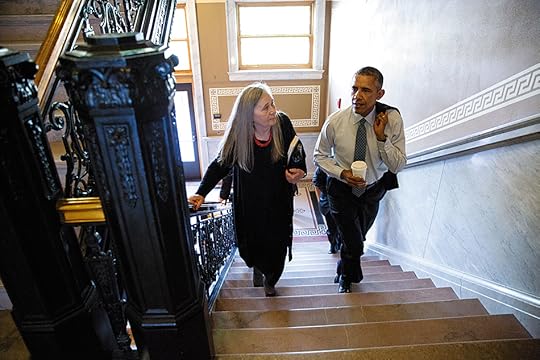
Photo taken in the beautiful Iowa State Capitol in Des Moines.
When I lived in Des Moines, the capitol of Iowa, I met some amazing people–my forever friends, and some folks with recognizable names. Living in a small big town allowed contacts I would never have had in my hometown of Chicago. I shook hands and talked with Secretary Hillary Clinton, Rep. Nancy Pelosi, Gov. Howard Dean, Gov. Tom Vilsack, Sen. Tom Harkin, Sen. Chuck Grassley and Gov. Terry Branstad–to name a few. I joined a series of talks where celebrated women shared their lives: Anne Lamott, Julie Andrews, Jane Fonda, Mia Farrow, Ann Richards and more. I heard Yo Yo Ma and Itzhak Perlman and even shook hands with Barack Obama. But I never met a writer that I admire and would feel honored to sit and talk to–Marilynne Robinson. She is currently a professor with the Iowa Writers Workshop at the University of Iowa in Iowa City. Wow, if I could go to Prairie Lights and hear her read.
Background of Marilynne Robinson
Robinson’s first best-selling novel, HOUSEKEEPING was published in 1980 and nominated for a Pulitzer. She didn’t publish another novel until GILEAD, in 2005, and it did win the Pulitzer. Because Robinson had fallen in love with the family of her creation, the Boughtons, she wrote two sequels, HOME and LILA, published in 2008 and 2014, respectfully. Readers like me were thrilled.
I will always remember driving back to Des Moines after visiting my mom who was slowly dying in a senior home. Listening to an audio version of HOME, I started to cry. Minister and widower Robert Boughton is also dying and wants his son Jack to stay in Gilead. “I can’t enjoy the thought of heaven like I should, leaving so much unattended to here. I was hoping I would be able to tell your mother that you had come home.” Jack sat pondering his father…finally he said, whispered, “I hope you will give her my love.”
POTUS Asks to Sit Down and Chat: Democracy
Robinson’s works touch on the deep religious roots of our culture and President Barack Obama, like me, had read all of her novels and asked to speak to her about the broader cultural forces that shape and affect our democracy. You can listen here. Marilynne and POTUS met in an architectural jewel, the legal library in the Iowa State Capitol in Des Moines. And after listening to their hour podcast, I hope to capsule here and next week the main points that they covered.
They concurred that the basis of democracy is that people assume well of other people. That allows us to work together. Fear and conspiracy theories fight the function of democracy. Democracy (demos: Greek for people) indicates that WE ARE ALL FROM EVERYWHERE, and it is inappropriate to have an “in-group.” They agree that democracy is the consequence of humanism–being human and having a love of God is always implied in this. LOVE THY NEIGHBOR should be part of how we function and not arming ourselves constantly against the “imagined other.” THIS IS A CHALLENGE and IT IS DIFFICULT! Yes.
Homespun Values
In the discussion of Robinson’s work, that it features small town Iowa, Robinson and POTUS agreed about the importance of life on the local level, that it can instill the virtue of interacting with our neighbors through Little League and trips to the ER. We are being good to each other, caring for each other. Knowledge of one another fights against FEAR.
Then they discussed the GAP between this, our daily life, and political life. Robinson suggested that the restlessness that helped build this country is trying to unbuild it. She says: “People who don’t like government should go live where there is none–no roads, education, post office, electricity.” Suspicion of government can be paralyzing and so can someone building up fear of THE OTHER. An emphasis on CONFLICT creates a pessimism and drowns out the positive voices in our culture. POTUS: And that, too, is a running strain in our democracy. That’s sort of in our DNA. We’re suspicious of government as a tool of oppression. And that skepticism is healthy, but it can also be paralyzing when we’re trying to do big things together.
Reading Novels/Listening to Music
POTUS asked Robinson if we are still reading novels, still distilling ideas through the lives of characters who can offer some hope or analysis. They talked about Iowa small towns and how POTUS felt comfortable in 2004 when he began his presidential campaign and spent a great deal of time in Iowa being with families. I’d go into these towns and everybody felt really familiar to me, because they reminded me of my grandparents and my mom and that attitude that you talk about. You saw all through the state—and I saw this when I was traveling through southern Illinois when I was first campaigning for the United States Senate—and I actually see it everywhere across the country. Robinson concurs because she has traveled all through Iowa and set her novels in the state and sees it as a symbol of America and its people and their struggles and how religion and day to day living can bring people closer together and yet challenge their beliefs at the same time.
They then discussed HAMILTON, the brilliant musical currently on Broadway, seeing it as a symbol of the vibrancy of American democracy. The show and its song lyrics emphasize that our forefathers were brilliant, but at the same time flawed. Just as they are today. They agreed that HAMILTON is an excellent way to reach young people and teach them history.
How the United States Relates to History
POTUS stated that in many ways America is ahistorical. He says: That’s one of our strengths—we forget things. You go to other countries, they’re still having arguments from four hundred years ago, and with serious consequences, right? They’re bloody arguments. In the Middle East right now, you’ve got arguments dating back to the seventh century that are live today. And we tend to forget that stuff. We don’t sometimes even remember what happened two weeks ago.
Education and Quarterly Earnings
Robinson and POTUS also discussed the importance of education, agreeing that all of society needs to support education and often it does not. Success is defined not by how much you read and learn but by quarterly earnings. Robinson asks that folks think about what makes them feel optimistic. When she asks the question of others, she hears that people crave a society that supports them. Her solution to getting there? She says: And it’s only—really, if we could all just turn off media for a week, I think we would come out the other side of it with a different anthropology in effect. I wish we could have a normal politics where I disagree with people, they present their case, we take a vote, and if I lose I say, yes, that’s democracy, I’m on the losing side of a meaningful vote.
What Would You Like to Add to the Conversation?
Would love your thoughts. And more next week. Thanks to the New York Review of Books.

Saying Goodbye at the Des Moines Airport

The stacks in the legal library at the Iowa State Capitol. A place you wouldn’t want to leave.
(Visited 11 times, 4 visits today)

